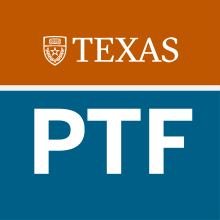Individual Fellow Initiatives

The “Social/Wellness Module:” Providing Space for Wellbeing and Social Learning for Incoming UT Students
Cohort: 2022
Fellow: Marina Alexandrova
My project addresses the lack of built-in social/wellness-oriented interactions in introductory courses for

Peer Mentor Leadership Project
Cohort: 2021
Fellow: Gwendolyn Stovall
UT CNS Freshman Research Initiative (FRI) peer mentors are a critical component of FRI success! FRI peer mentors, many serving as student teachers, guide undergraduate students in scientific research activities. For many, that includes leading meetings, providing student feedback, creatively solving problems and helping students connect the dots, honing interpersonal social skills, effectively communicating, and more – all 21st Century skills (Trilling and Fadel, 2009).

Making New Scientists: Supporting the Training of Incoming Science Majors
Cohort: 2021
Fellow: Ruth Shear
Traditional science degree programs concentrate primarily on content and are not known for preparing their graduates with other skills needed for scientific careers.

Student Success and Well-being
Cohort: 2020
Fellow: Nina Telang
My project is designed to support engineering students primarily in their freshman and sophomore years, when they struggle the most, resulting in high failing rates. Students do not always implement the best study strategies as they transition from high school to college, and do not prioritize their self-care and well-being. College level coursework is significantly more difficult compared to high school level courses and require more critical and abstract thinking.

Mentored Research Learning: An Evaluation
Cohort: 2020
Fellow: Michael Findley
Mentored research defies the traditional higher education approach, which separates research and teaching into distinct activities. Instead, mentored research fully integrates faculty research activities and student learning. In this approach, researchers do not simply carry out their research in isolation with a paid set of PhD-level research assistants. Further, students do not simply learn from in-class lectures or more traditional out-of-classroom experiences, such as study abroad.

Facilitation of Student Success in Introductory Accounting
Cohort: 2019
Fellow: Kristina Zvinakis
The students participating in this project are part of a group of students known as McCombs Success Scholars (MSS). Such students have been identified as potentially not as well prepared for academic success as some of their McCombs-school peers (i.e., they grew up in smaller cities/towns, their family’s socio-economic status tilts toward the lower end of the scale, they attended a small high school).

Freshman Opportunities for Research in the Geosciences (FORGe)
Cohort: 2017
Fellow: Mary Poteet
I am working on a unique partnership between Austin Community College (ACC) and UT Austin to develop collaborative peer learning communities (PLCs) in the Geosciences with mixed cohorts of two-year college (2YC) and four-year college (4YC) students.

BA Colloquium in Theatre and Dance
Cohort: 2017
Fellow: Andrew Carlson
The BA program in Theatre and Dance lacks adequate faculty mentorship and an identity as a program. A recent poll of BA students in Theatre and Dance on strengths and weaknesses of the program revealed that many BA students see themselves as “second-class citizens” in a department that offers three highly structured and mentored BFA programs in dance, teacher certification, and acting.

Online Drivers Exercise
Cohort: 2017
Fellow: Clint Tuttle
Since my first semester at UT (Fall 2011) I’ve taught about 10,000 students across all colleges. From this immense amount of student interaction, I’ve come to believe that many of our students lack the tools and techniques to define their own personal path to success and are not confident in how to best make decisions about their future. As a result of this, I believe many students are seeking what they see as a “safe path” (e.g.

Hispanic STEM Transfer Student Challenges and Resources
Cohort: 2016
Fellow: Maura Borrego
In 2012, the President’s Council of Advisors on Science and Technology documented the need to prepare an additional one million STEM professionals over the next ten years. To achieve this increase in STEM degree production, attention must be directed towards improving pathways for all students, specifically minority students who have been historically underserved. Research has indicated a need to focus on these underrepresented groups in STEM settings as enrollment patterns and access to higher education differs between groups of students.

Teaching the University: Enhancing Student Understanding and Appreciation of the University
Cohort: 2016
Fellow: Hina Azam
My project is intended to address a lack of understanding among most undergraduate students of the university both as an institution and as a space in which intellectual life is pursued. This lack of understanding among undergraduates is intertwined, I believe, with a broader lack of appreciation for higher education/academia in our cultural and civic life.

Thinking Beyond the Four Years: Assessing a Program for Coaching Career Success
Cohort: 2015
Fellow: Brad Love
The project is a longitudinal partnership with the Vick Center for Strategic Advising, College of Education faculty, Project 2021 staff, and other Longhorns to measure existing attempts to teach useful skills such as emotional intelligence so that students can make constructive decisions while at UT and then be prepared for the significant life transition that is one’s first career post-graduation. The key activities include semesterly surveys and interviews with students using Vick Center services such as in-person visits and online modules.

Professional Development for Undergraduate Students Majoring in the Biological Sciences
Cohort: 2015
Fellow: Christopher Shank
I seek the opportunity to create a professional development curriculum that would provide students a structured vehicle for developing professional confidence and self-awareness, and facilitate early success in an increasingly competitive ‘real-world.’ My desire to work on this idea as a Provost Teaching Fellow stems from the overwhelmingly positive student response to professional development activities that I have incorporated in several of my courses.

